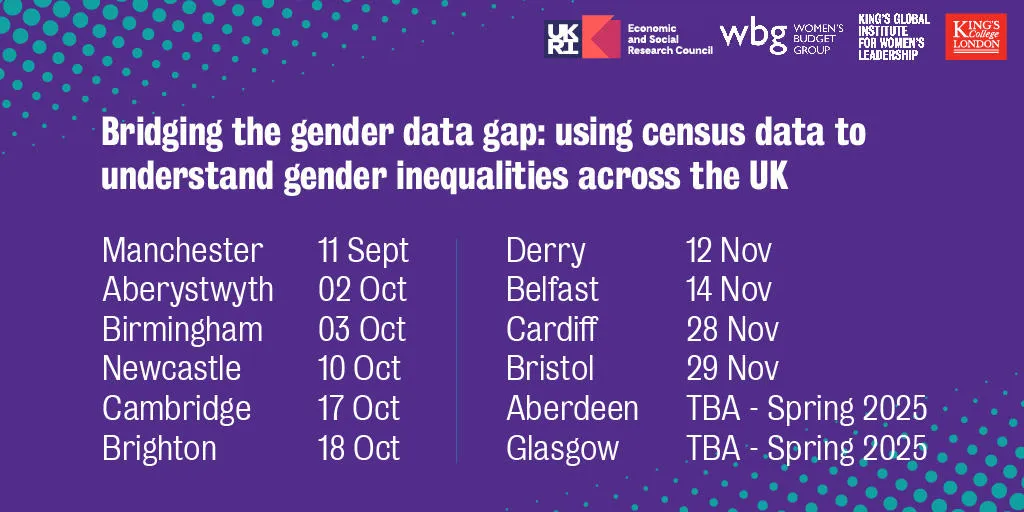Bridging the gender data gap: using census data to understand gender inequalities across the UK
Whilst we know that important societal inequalities exist along sex and gender lines, it is unfortunately still rare that these are meaningfully factored into policymaking. The availability of the Census 2021 provides a once in a decade opportunity to explore gender inequalities in different domains of life across regions in England and Wales on the individual and household level.
If feminist organisations and activists can explore and analyse census data, we may be able to reveal previously underexplored differences and inequalities. We can use our findings to call for intersectional inequalities to be factored into the planning, budgeting, and delivery of public services, and to expose or prevent policy that discriminate on the basis of gender or other structural inequalities.
Take part in our workshop series

The census offers a once-in-a-decade opportunity to gain a uniquely comprehensive picture of who we are and how we live as a nation. It also reveals important differences within the country, providing a vital opportunity to analyse and draw attention to under-explored inequalities.
The Global Institute for Women’s Leadership at King’s College London and the Women’s Budget Group are running one-day workshops across the four UK nations to demonstrate how the latest census data can be accessed and analysed from a gender and intersectional perspective.
The sessions will provide:
-
a better understanding of available census data
-
ways of harnessing this data in your work use of it for your work and interests
-
engagement with inspiring people working toward greater equality in the UK.
The workshops are aimed at anyone who feels this information might help them in their work, such as women’s organisations, local authorities, academics, or grassroots campaigners.
No previous data skills are required. We will have hands-on sessions so that you can work with people who may be more comfortable with the IT and analysis skills. Together, we will combine gendered research with lived experience to bring the raw data to life.
These workshops are free, and grants are also available to cover the cost of travel to and from the workshop – just indicate if you require this upon registration.
Click here to book your place.
Our research
In previous and related project, together with the Women’s Budget Group, we put together a fact sheet explaining in more detail what the Census 2021 is and in which ways the data can be useful for grassroots organisations in gathering information about the lives, needs, and characteristics of women in their communities. You can view this below.

